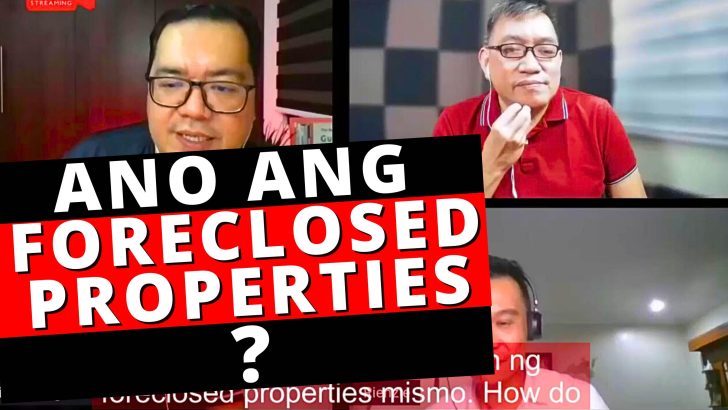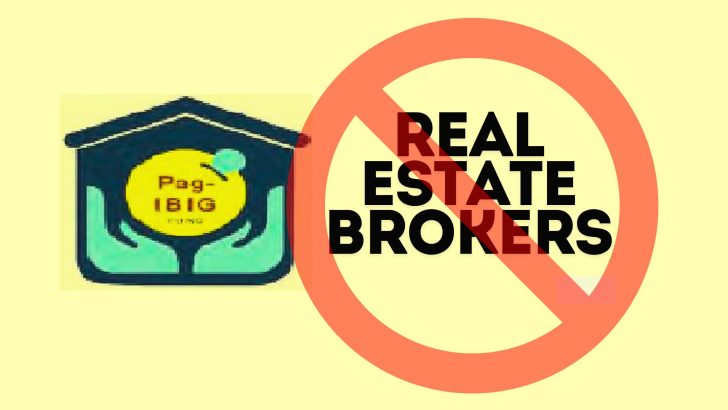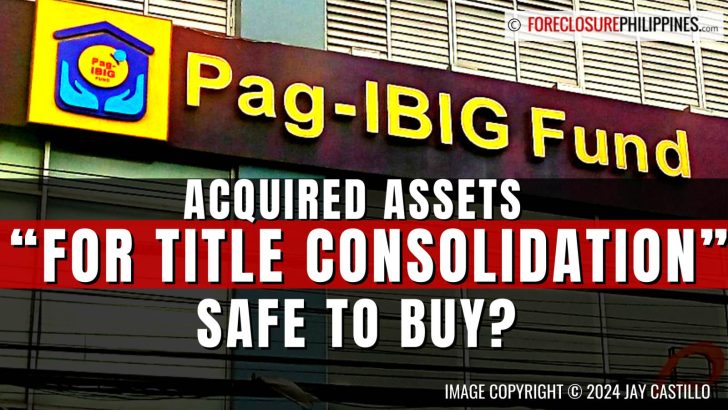Welcome to the fifth and last part of this series on the 3 types of income one can get through real estate investing. Before you begin reading this article, I recommend you review the first four parts:
- How to get portfolio income through real estate investing
- Earned income through real estate investing
- Passive income through real estate investing – the path to financial freedom(Part 1)
- How passive income through real estate investing can lead to financial freedom(Part 2)
In this series finale, let me share some final words and how one can use all three types of income to achieve financial freedom. Here goes…
Recap and some afterthoughts…
Portfolio Income
In a nutshell, portfolio income in real estate is basically income on paper in the form of equity. You still need to either sell or refinance a property to make use of your equity. Any property bought below market value should have a big potential for a gain in equity, if it really was bought below market value.
Portfolio income may boost one’s net worth and may give one bragging rights, but as Rich Dad would put it, someone’s net worth is often “worth less” than they think. In other words, if one’s equity cannot be turned into cash, or if the property cannot generate any positive cashflow, then those properties are “worth less” as they really are not assets that put money in your pocket but are rather liabilities that take money away from your pocket.
Speaking of paper assets, one may soon be able to invest in a Real Estate Investment Trust or REIT here in the Philippines, which I believe is a form of paper asset. More information about REIT in the Philippines can be found here: Real Estate Investment Trusts (REIT) – The next big thing in real estate
Earned income
Earned income that one can gain through capital gains, and commissions(now referred to as professional fees because of the RESA LAW) is a relatively quicker way of earning from real estate investing, but should not be looked at as a means to get rich quick.
I believe that the earned income one can get through capital gains from flipping properties should be used to acquire passive income generating assets later on.
 Although it may appear that earned income through flipping properties received a bashing from me when I compared it to the rat race, make no mistake, I still believe that we still need to flip properties for capital gains as it is a great way to build capital. This can then be used later on to buy bigger deals that can produce bigger positive cashflow, much like lesson #2 in the Top 7 lessons I learned from playing Rich Dad’s Cashflow 101 game.
Although it may appear that earned income through flipping properties received a bashing from me when I compared it to the rat race, make no mistake, I still believe that we still need to flip properties for capital gains as it is a great way to build capital. This can then be used later on to buy bigger deals that can produce bigger positive cashflow, much like lesson #2 in the Top 7 lessons I learned from playing Rich Dad’s Cashflow 101 game.
Passive income
Passive income, considered by many as the holy grail of real estate investing, can really help one become financially free, but there are a lot of things one should remember when investing for passive income. Let me summarize them below.
- Proper pre-screening of tenants is needed to avoid “tenants from hell”. Failure to do this can spell disaster.
- Rental properties require competent property management and maintenance.
- It is the hardest real estate investing technique to do because finding properties that can generate positive cashflow is more difficult than finding properties that can be flipped for a profit, and this applies whether you buy foreclosed properties from banks, or those that are for sale by owners or FSBO’s.
- It may sound simple, but is definitely not easy.
- Although it may not be easy, it is easier than most people think. It is definitely easier than spending most of your life stuck in the rat race as an employee.
- Negatively geared rental properties can become positively geared eventually through rental escalation(Thanks Gio for reminding me about this through your comment), provided the property is in a good location. Of course, it would be ideal to have a rental property produce positive cashflow from the very start.
Which investing strategy should you use?
Do you invest for equity and build you net worth, or for capital gains through flipping (wholesaling and retailing), or for passive income by acquiring rental properties? If you ask me, I believe it would be better to combine all of them! let me try to explain as follows:
1. “Make money when you buy, not when you sell…”
In other words, make sure you buy properties below market value. How much below market value? That would depend on your profit targets but a safe target would be to acquire properties between 40% to 50% below market value. In effect, that discount would translate to a bigger potential for equity gain. This would help ensure that a deal will really be profitable, provided you were able to arrive at a fairly accurate estimate of a property’s market value.
2. Raise capital through earned income/capital gains
As mentioned earlier in this post, one can potentially raise capital faster by flipping properties that are bought at a price below market value for capital gains, or even through the accumulation of “professional fees” by acting as a real estate broker or agent. These can then be used later on to buy bigger deals that can produce bigger positive cashflow.
3. Use the capital to acquire passive income generating assets
The capital that can be raised through flipping properties can then be used to acquire income generating rental properties.
There you have it folks…
I hope you have enjoyed reading this series as much as I enjoyed writing it. I would like to believe that I have this burning passion for real estate investing and I wish that somehow, I was able to share this passion of mine through this post. Feel free to let me know what you think by leaving a comment below. Thanks!
Let me leave you all with a quote from Herbert Spencer, which I often hear from Ebb, a teammate of mine in the RYP team:
“The great aim of education is not knowledge but action.”
Herbert Spencer-English philosopher (1820 – 1903)
To our success and financial freedom!
Jay Castillo
Real Estate Investor
Real Estate Broker License #: 20056
Blog: https://www.foreclosurephilippines.com
Follow me in Twitter:http://twitter.com/jay_castillo
Find us in Facebook:Foreclosure Philippines facebook page
Text by Jay Castillo and Cherry Castillo. Copyright © 2010 All rights reserved.
PS. Are you a new visitor? Click here NOW to start learning more about foreclosure investing in the Philippines
PPPS. Don’t be the last to know, subscribe to e-mail alerts and get notified of new listings of bank foreclosed properties, public auction schedules, and real estate investing tips. Inbox getting full? Subscribe through my RSS Feed instead!
they think







![Why invest in foreclosed properties in the Philippines? + Top things to consider [Video] 6 Why invest in foreclosed properties in the Philippines? + Top things to consider [Video]](https://www.foreclosurephilippines.com/wp-content/uploads/2023/03/video-how-to-invest-in-foreclosed-properties-in-the-philippines-v3-728x410.jpg)

i wan to start in this business “Real State” foreclosure , but i am zero knowledge plz. any one can help me?
thanks
Ali
“Make money when you buy, not when you sell” This keeps echoing through my head all the time. Before, im planning to buy condos and rent them out but it turns out that foreclosure investing is the way to go! more power Jay!
been trying to get a hold of larry gamboas ebooks – all his links seem to be down -fyi
cheers!
ive been trying to get a hold of larry gamboa’s ebook , have found a few sites however the links seem to be down- fyi
Very good information on real estate investing and some great examples. Thanks.
hi jay, great stuff, i am curently looking into a 800k “potential” aparmtnet – its 35 square meters, and its three floors, i figure it could make 15k amonth is this a good deal??? thanks for the advice in advance- cheers
Hi jay,
Is investing through REITs now ongoing? How will i start if i want to invest a minimal amt. at SM Holdings or Ayala Land? My husband is an OFW. It’s very interesting but i don’t know anything about its guideline. Any idea will be a big help.
Thank you and more power!
Hi Sir!
I bookmarked your blog already for future reference. I am also hoping I could start investing in real estate this year. I am already scouting properties below 2M. I hope you would give more tips regarding real estate investments. Kudos to you!
really informative, thanks for the time & effort of sharing. they are highly appreciated.
joseph
las pinas/coron,palawan
Hi Joseph, nice to see you here! Thanks for the compliment and for dropping by! Cheers!
Dear Sir Jay,
It really inspires me to invest in real estate to escape the rat race. I know it is just a matter of time that this knowledge will be applied and be put to use. I saved all your blogs for me to re-read and for future use. You are a blessing to us wannabes.
Hi Helen, thank you also and I look forward to hearing good news about your investment properties and other real estate investing adventures.
Wow! This is truly an inspiring article Jay! I’ve read through all 5 parts and all I can say is that you certainly help inspire me to become a better investor. I am a long long long way to go when it comes to real-estate investing and I am really fortunate to learn from you through this blog. May your blog inspire more of us who are still in the rat race. God bless!
Thank you Allan, I really appreciate it! Hey, congrats to you and your blog for making it to the number 1 spot in google!